
Friction into Traction: A Case Study of Friction in Strategic Ethnography
This case study highlights the transformative power of strategic ethnography in shaping frameworks that gain traction within organizations. We analyze three productive...

A.I. among Us: Agency in a World of Cameras and Recognition Systems
This paper reports on the use and perceptions of deployed A.I. and recognition social-material assemblages in China and the USA. A kaleidoscope of “boutique”...
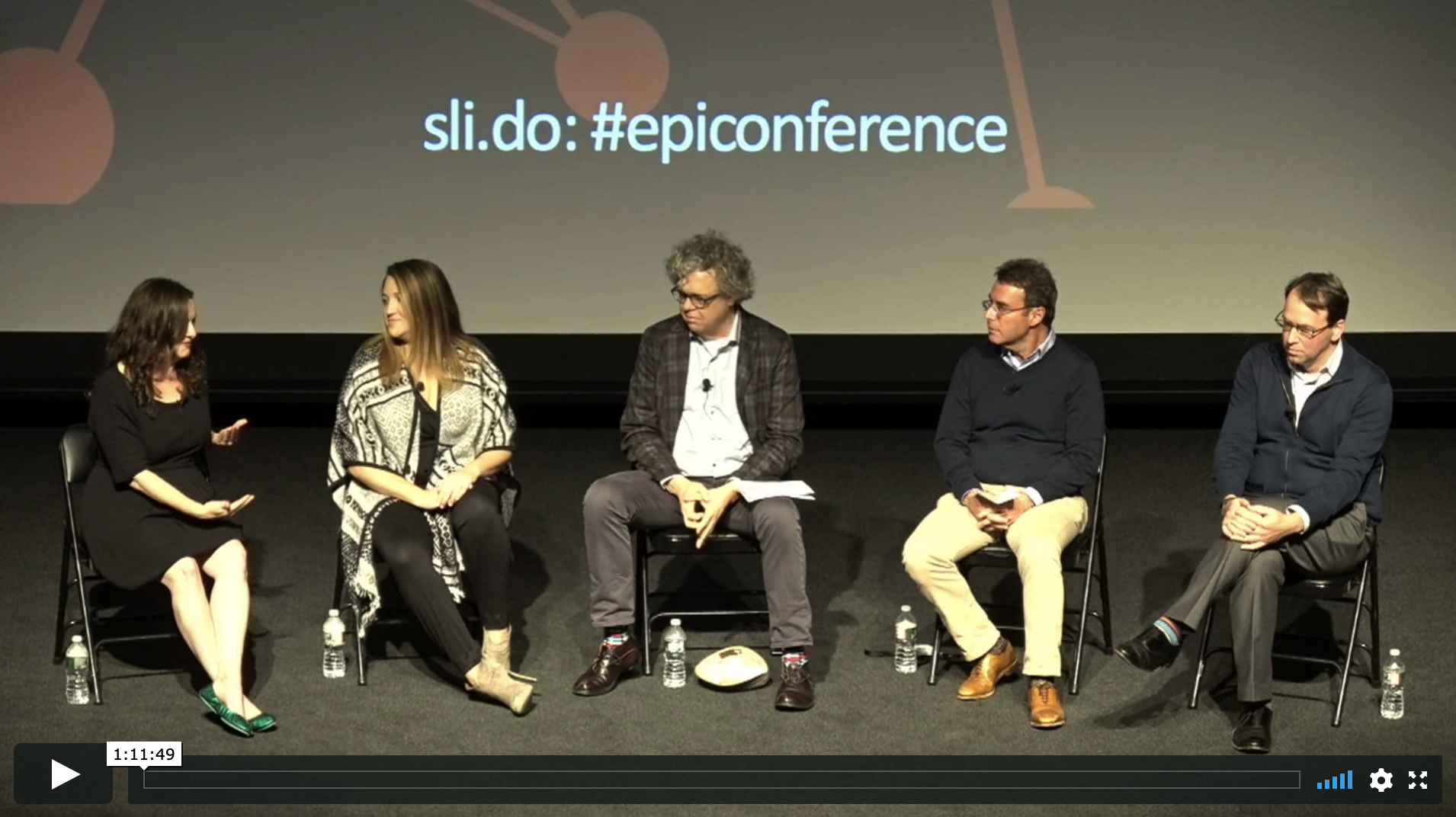
Reconceptualizing Privacy
EPIC2019 Panel, Providence, Rhode Island Algorithmic systems are increasingly integrated into the physical and digital infrastructures of our lives. The borders...
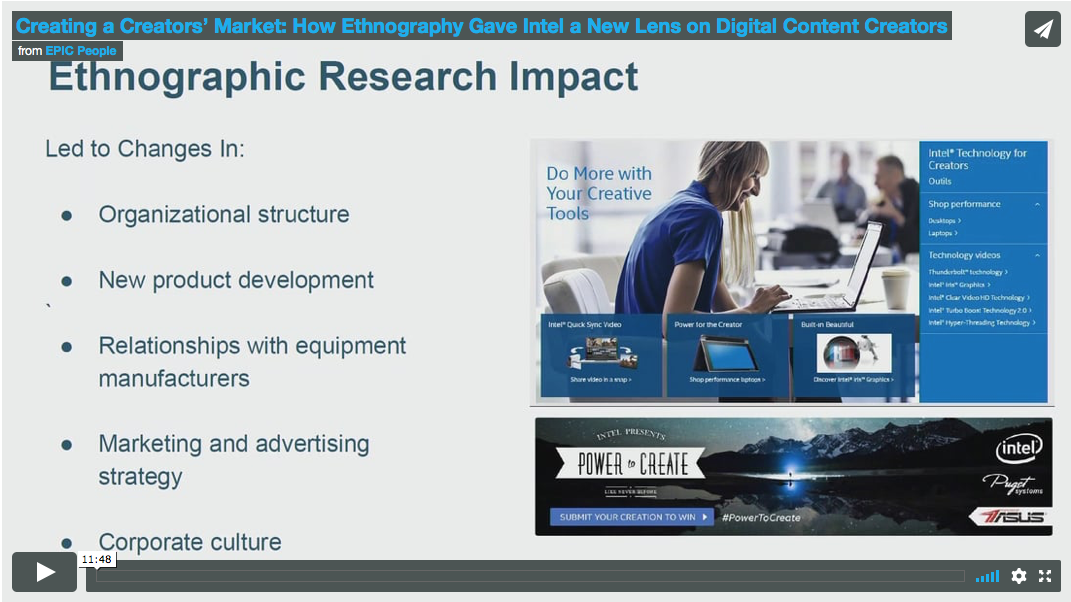
Creating a Creators’ Market: How Ethnography Gave Intel a New Perspective On Digital Content Creators
This case demonstrates how ongoing ethnographic research from within a corporation led to the re-segmentation of a market. The first part of the case focuses on...
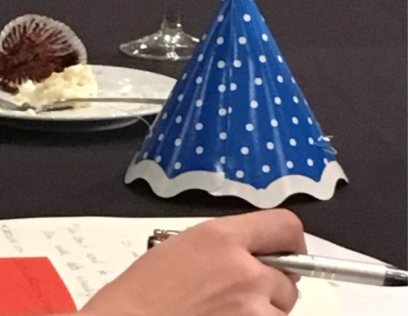
The EPIC2015 Conversation
Every year the EPIC Board opens the published conference proceedings with a Conversation—a reflection on key ideas and passions afire at the meeting and a...
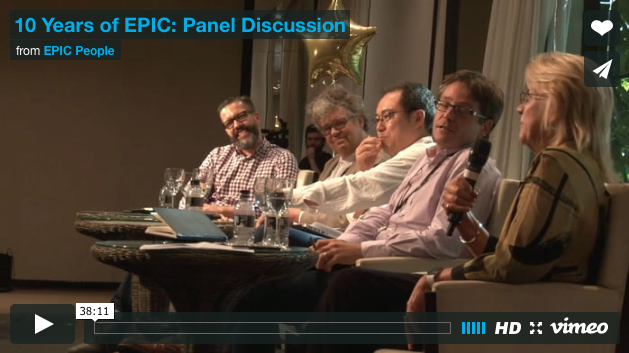
10 Years of EPIC, Part V: Panel Discussion
Special Session: 10 Years of EPIC Part 1: ken anderson, Intel Part 2: Hiroshi Tamura, Re:public Inc. Part 3: Jeanette Blomberg, IBM Part 4: Simon Roberts, Stripe...

Bridging Ethnography and Path-finding Business Opportunities
While ethnography has been integrated into the design research, new product development and corporate strategy, it has been less well integrated into path-finding...
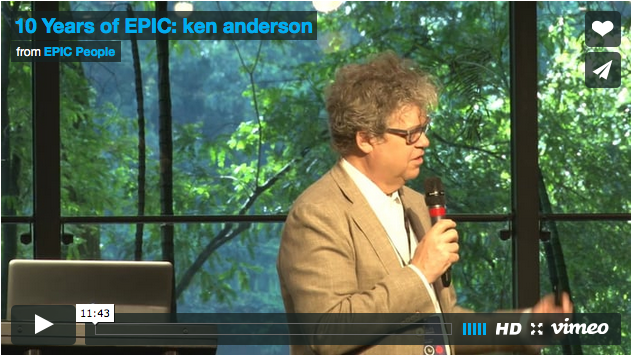
10 Years of EPIC, Part I: ken anderson
Special Session: 10 Years of EPIC Part 1: ken anderson, Intel Part 2: Hiroshi Tamura, Re:public Inc. Part 3: Jeanette Blomberg, IBM Part 4: Simon Roberts, Stripe...

The EPIC 2014 Conversation
Download PDF From September 7 through 10, EPIC convened in New York City at Fordham University’s Manhattan campus. This year’s conference was hosted by Fordham’s...

Abstract 2.0: If We Are All Shouting, Is there Anyone Left to Listen?
This paper explores notions of ‘voice’ as it relates to Web 2.0. We begin by tracing the social meanings of Web 2.0 technologies Brazil. There the notions of...

The Real Problem: Rhetorics of Knowing in Corporate Ethnographic Research
This paper explores discourses of the ‘real’ in commercial ethnographic research, and the transitions and transformations those discourses make possible and...

We We We All The Way Home: The “We” Affect in Transitional Spaces
The majority of ethnographic studies for businesses have focused on places: home, work, “third places,” and even “non-places”. Daily life, however, is composed...
